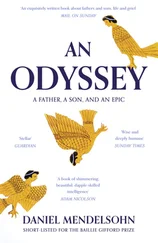fn1 Costantino Kavafis: Poesie , tr. Bruno Lavagnini (Palermo: Edizioni Novecento, 1996), p. 159; translation mine.
A NOTE ON
PRONUNCIATION OF PROPER NAMES
The rhythm and assonance of Cavafy’s poetry depends in many cases on the correct pronunciation of proper names; fortunately, a more or less standard pronunciation of Greek and Byzantine names as traditionally spelled in English, which I have chosen to follow, often allows for scansion and sound patterns not dramatically different from the ones produced by the Modern Greek pronunciation of those names.
The consonant combination ch, representing the Greek letter χ, is generally pronounced as a hard c or k whether at the beginning of a word or in the middle; hence the name Charmides is KAHR-mih-deez, not Tchar-mih-deez.
An initial i is consonantal, pronounced as a y: hence the name Iases is pronounced Yah-SEEZ. Otherwise, the vowel i is pronounced ee, and never rhymes with the word eye.
The final -es in masculine nouns and names is invariably voiced, and pronounced eez, like the -es at the end of the name Socrates. Hence the name Mebes is pronounced Meebeez, never Meebs.
In the case of Classical Greek names, the final e in feminine nouns and names is always sounded as ay: hence the name Stratonice is Strah-toe-NEE-kay. In the case of Byzantine names, the final e is pronounced as ee: hence the second part of the empress Anna Dalassene’s name is Dah-lah-see-NEE, never Dah-lah-SEEN.
I
Poems 1905 – 1915
You said: “I’ll go to some other land, I’ll go to some other sea.
There’s bound to be another city that’s better by far.
My every effort has been illfated from the start;
my heart—like something dead—lies buried away;
How long will my mind endure this slow decay?
Wherever I look, wherever I cast my eyes,
I see all round me the black rubble of my life
where I’ve spent so many ruined and wasted years.”
You’ll find no new places, you won’t find other shores.
The city will follow you. The streets in which you pace
will be the same, you’ll haunt the same familiar places,
and inside those same houses you’ll grow old.
You’ll always end up in this city. Don’t bother to hope
for a ship, a route, to take you somewhere else; they don’t exist.
Just as you’ve destroyed your life, here in this
small corner, so you’ve wasted it through all the world.
[ 1894 ; 1910]
What a pity, given that you’re made
for deeds that are glorious and great,
that this unjust fate of yours always
leads you on, and denies you your success;
that base habits get in your way,
and pettinesses, and indifference.
How terrible, too, the day when you give in
(the day when you let yourself go and give in),
and leave to undertake the trip to Susa,
and go to the monarch Artaxerxes,
who graciously establishes you at court,
and offers you satrapies, and the like.
And you, you accept them in despair,
these things that you don’t want.
But your soul seeks, weeps for other things:
the praise of the People and the Sophists,
the hard-won, priceless “Bravos”;
the Agora, the Theatre, and the victors’ Crowns.
How will Artaxerxes give you them,
how will you find them in the satrapy;
and what kind of life, without them, will you live.
[ 1905 ; 1910]
But Wise Men Apprehend What Is Imminent
The gods perceive what lies in the future, and mortals, what occurs in the present, but wise men apprehend what is imminent.
—PHILOSTRATUS, Life of Apollonius of Tyana, VIII, 7
Mortal men perceive things as they happen.
What lies in the future the gods perceive,
full and sole possessors of all enlightenment.
Of all the future holds, wise men apprehend
what is imminent. Their hearing,
sometimes, in moments of complete
absorption in their studies, is disturbed. The secret call
of events that are about to happen reaches them.
And they listen to it reverently. While in the street
outside, the people hear nothing at all.
[ 1896 ; 1899; <1915]
Of glory be you fearful, O my Soul.
And if you are unable to defeat
your ambitions, then hesitantly, guardedly
pursue them. And the further you proceed,
the more searching, the more attentive must you be.
And when at last you reach your apogee—a Caesar;
and cut the figure of one who’s much renowned,
then take heed more than ever as you go out on the street,
a man of power, conspicuous with your retinue,
when someone approaches you out of the crowd,
a certain Artemidorus, bringing a letter,
and hurriedly says “Read this right away,
it’s something important that concerns you,”
don’t fail to stop; don’t fail to put off
all talk and business; don’t fail to
brush off all and sundry who salute and fawn
(you can see them later); let even
the Senate wait, and find out at once
the weighty contents of Artemidorus’s letter.
[ 1906 ; 1910]
Deep in fear and in suspicion,
with flustered minds and terrified eyes,
we wear ourselves out figuring how
we might avoid the certain
danger that threatens us so terribly.
And yet we’re mistaken, that’s not it ahead:
the news was wrong
(or we didn’t hear it; or didn’t get it right).
But a disaster that we never imagined
suddenly, shatteringly breaks upon us,
and unprepared—no time left now—we are swept away.
[ 1910 ; 1911]
When suddenly, at midnight, there comes the sound
of an invisible procession passing by
with exquisite music playing, with voices raised—
your good fortune, which now gives way; all your efforts’
ill-starred outcome; the plans you made for life,
which turned out wrong: don’t mourn them uselessly.
Like one who’s long prepared, like someone brave,
bid farewell to her, to Alexandria, who is leaving.
Above all do not fool yourself, don’t say
that it was a dream, that your ears deceived you;
don’t stoop to futile hopes like these.
Like one who’s long prepared, like someone brave,
as befits a man who’s been blessed with a city like this,
go without faltering toward the window
and listen with deep emotion, but not
with the entreaties and the whining of a coward,
to the sounds—a final entertainment—
to the exquisite instruments of that initiate crew,
and bid farewell to her, to Alexandria, whom you are losing.
[ 1910 ; 1911]
If you are among the truly elect,
watch how you achieve your predominance.
However much you’re glorified, however much
your accomplishments in Italy and Thessaly
are blazoned far and wide by governments,
however many honorary decrees
are bestowed on you in Rome by your admirers,
neither your elation nor your triumph will endure,
Читать дальше












